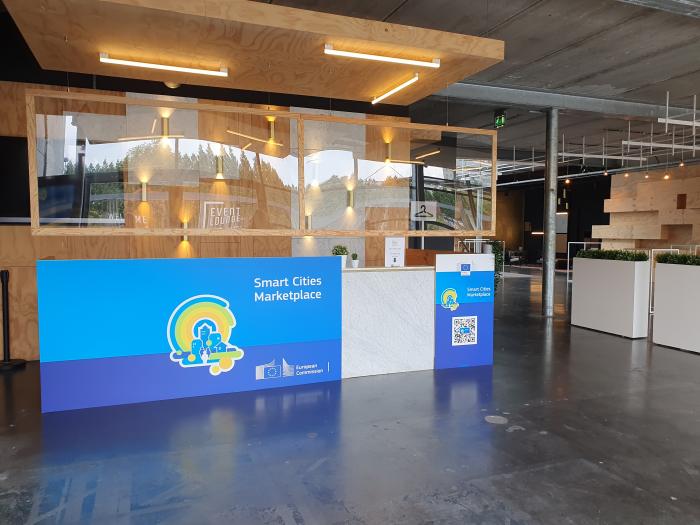
The community of the Smart Cities Marketplace will undergo a major transformation in the coming months. Georg Houben (DG-Energy) highlighted the main changes that are planned. More agile and flexible communities of practice will replace the current Action Cluster structure dating from the start of the European Innovation Partnership on Smart Cities and Communities in 2013. These communities of practices will work on specific topics for a limited period of 1-2 years. In addition, small consortia of cities, businesses, research and NGOs will have the possibility to receive technical assistance to develop project ideas into mature and bankable projects.
This transformation also invites us to look back at what the Smart Cities Marketplace has brought us in nearly 10 years of Action Clusters. Derrick Pisani and Jürgen Ritzek, Paul Cartuyvels, Maria Sanguiliano, Grazia Fiore and Judith Borsboom looked back at success stories and main achievements initiated by the Action Clusters. Important new topics and concepts have been put on the agenda, such as Positive Energy Districts, Urban Air Mobility, Urban Data Platforms, and the potential of earth observation data for realising smart cities.
The Action Clusters also pointed out new ways of working toward smart and climate-neutral cities, for instance, by showing how to develop viable business models for smart cities and for giving citizens a prominent role in co-creating local plans, strengthening inclusiveness and local democracies, and awarding citizens for sharing their personal data. Smaller and medium-sized cities learned from each other’s specific experiences, and the advantages of the humble lamppost are now widely recognised.
The collaborative effort of developing the Smart Cities Guidance Package with nearly 100 partners has led to a common integrative European approach that will soon be integrated into a new wiki explaining how to develop climate-neutral and smart city strategies and portfolios of projects.
The following recommendations for the next edition of the Smart Cities Marketplace and its community were developed in a BarCamp session around cross-cutting topics. Participants indicated their interests and discussed the most prominent findings, questions and ideas in smaller groups they were allocated to.
Valuable suggestions were made on setting up energy communities and promoting heating and cooling in cities and which business models can help to finance them. Further, new ideas on the use of data for increasing urban resilience and how to better capture the value of urban data for achieving the European Green Deal by improved knowledge and bankability were posed.
Another group discussed how artificial intelligence can help local ecosystems and which mechanisms must be developed and set in motion to make it work in a good way. Lastly, the interfaces between innovative and sustainable technologies for urban mobility and the Smart Cities Marketplace, for instance, around passenger drones, were discussed, in particular in light of the execution of the Mission on Climate-neutral and Smart Cities.
All recommendations have been used to further develop suggestions for the upcoming Smart Cities Marketplace edition, so many thanks to all moderators and contributors! Follow us in the coming months to see the new community structure materialise!
